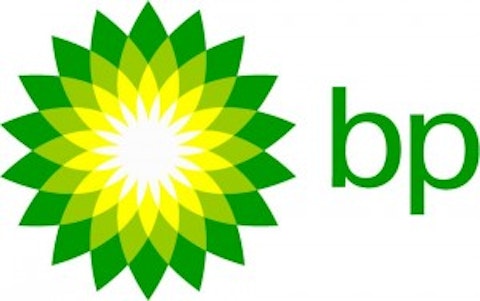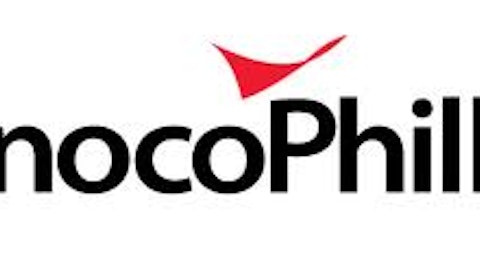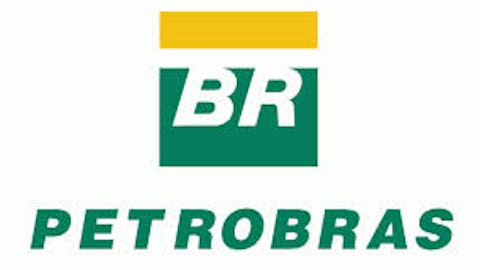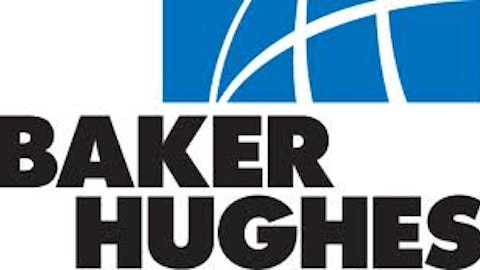Among all the other silly stuff going on these days – the Oscars, the Sequester and so forth – is the fact that the Federal Government’s case against BP plc (ADR) (NYSE:BP) is finally moving forward. It’s been about three years since the gulf oil spill that cost 11 people their lives and did a god-awful amount of damage to natural resources along the gulf.

So among all this, BP plc (ADR) (NYSE:BP) is trying to hammer out a settlement with the government. At trial the firm is potentially exposed to anywhere between $4 billion and $20 billion worth of damages. Also, if found in violation of the Clean Water Act there could be other, more difficult, regulatory penalties that slow the ability of BP to expand its drilling presence. If I’m sure of anything, it’s that the company and investors don’t want that to happen.
BP
BP, even though it was in bed with some other large firms in the Deepwater Horizon, is at the center of the issue. The company has tried to argue that both Halliburton Company (NYSE:HAL) and Transocean LTD (NYSE:RIG) should be involved in the settlement. However, for investors that isn’t going to play. The markets largely react to media coverage, and that means that BP is holding the bag.
There have been some real issues, share-wise, at BP over the last few years. Before the spill, BP was trading about $60 per share. Since then, it’s hovered around $40 per share. Holders back then took a real hit and haven’t recovered. The stock’s dividend also went from 84 cents per share to 42 cents pretty quickly. It’s recovered now to 54 cents, an astonishing 4.88% yield, but still, that’s an unhappy set of events. I think the best thing for BP would be to get past all this and try to rebuild itself. Uncertainty is going to keep the market away from it.
Halliburton Company (NYSE:HAL)
Halliburton is a part of the disaster in the gulf due to the fact that it did some of the work on the rig. Since then BP has done it’s fair share of finger-pointing at Halliburton for doing what BP calls substandard work on the cement portion that blew. Still, I don’t see a lot of the blame or market effect hitting Halliburton. The firm is one of the top oil field contractors in the world, and increased demand for oil is only going to further expand the company’s work.
Share-wise there was a small trough in Halliburton’s stock during the initial media frenzy about the gulf oil spill. However, that drop had been more than recovered by the end of 2010. These days Halliburton looks pretty good as shares have grown from $26.70 to $41.11 since last June. The firm also increased it’s dividend for the first time in many year’s just recently. A 1.22% yield isn’t great but the increase shows an increasing confidence that it’s going to be having good times in the near future.
Transocean
Transocean is the one who took a real hit after the disaster. The firm ran the rig that blew out and saw eleven people killed on its watch. It’s also been involved in the finger pointing as everyone involved in any way has been trying to pin it on someone else. Still, Transocean was the company on the scene when things went wrong, and that’s hasn’t done it any good at all.
Immediately following the blowout in the gulf, Transocean’s shares dropped more than 47% and have never substantially recovered. In early 2011 it climbed into the 80s but dropped again and now sit in the low 50s. Not a pretty sight for investors. There’s no dividend on a regular basis and there’s going to be a lot more negative publicity for the firm as the new trial gets media coverage. Avoid.
Royal Dutch Shell plc (ADR) (NYSE:RDS.A)
Why am I including Royal Dutch Shell? Not because they’re involved in the case but because they’re making a statement and attempting to expand their drilling in the gulf. That, combined with the world’s continuing appetite for oil in all of its uses, shows me that not everyone is crying in the corner about drilling. With new wells planned in the gulf, RDS is hoping to profit off that need.
Shares in RDS have been largely flat for the last year, trading within a tight range of $60.62 – $74.09 and currently sitting around $66. Still, the prospect of new wells and new reserves would be a good thing for the company. And it does return value to investors with a great 5.21% dividend yield. There’s no way I can argue with that. I think if you’re investing for income, RDS could be a very good choice for you right now.
Look, best guess is that BP tries put all of this behind itself with some whopping big settlement. It’ll take time to get there, but that would be best for the firm. Still, while the settlement is being worked out BP, Halliburton and Transocean are all going to be in the news in about the most negative fashion they can be. So shares in all of them are liable to be volatile for a while. Be cautious when approaching investing in them and don’t expect a quick payoff.
Good luck!
Follow Nate on Twitter: @natewooley
More columns from Nate Wooley:
- Which Tablet Makers Should You Invest In?
- Invest in Treasuries? These Stocks Laugh at the Idea
- Carnival Will Be Fine … Don’t Believe Me?
The article BP, Deepwater Horizon and Accountability, Should You Fret? originally appeared on Fool.com and is written by Nate Wooley.
Copyright © 1995 – 2013 The Motley Fool, LLC. All rights reserved. The Motley Fool has a disclosure policy.





